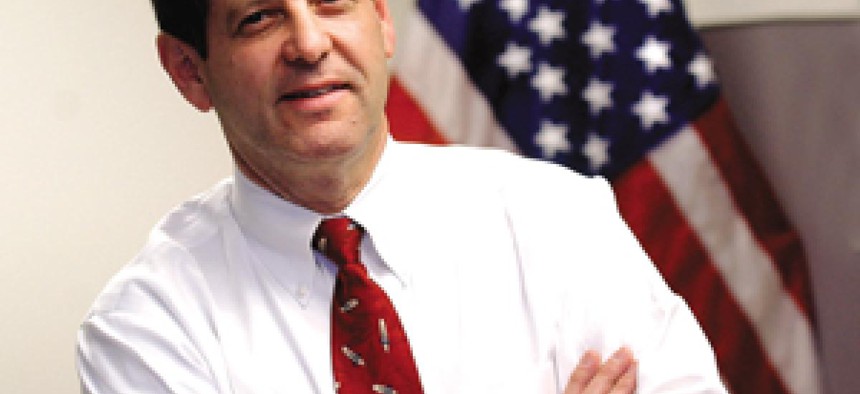Cooper leaves big shoes to fill at DHS

The next person to oversee the Homeland Security Department's technology infrastructure ? a job that came open when Chief Information Officer Steven Cooper resigned April 4 ? must be politically shrewd as well as technically savvy.Cooper leaves the agency's mission critical applications, enterprise architecture and back-office operations in a state of flux at the same time new DHS Secretary Michael Chertoff kicks off a re-evaluation of the department's organization."Cooper did noble work, but the problems remain the same," said James Lewis, director of the Director, Technology and Public Policy Program at the Center for Strategic and International Studies. "There are many systems that don't connect. You can't say that DHS has an integrated enterprise network."Cooper said he wants his replacement to come from inside DHS. "I believe it is important to sustain the momentum," Cooper said. That includes the five priorities he set for the department's IT development over the coming year: Lewis said weaving the department's systems together would require attention to mundane technology tasks, such as adopting common data formats and protocols via consistent metadata standards."Getting the enterprisewide network in place is going to require more than buying new technology and new equipment," Williams said.Apart from the internal challenges, Cooper's successor will be charged with mollifying a Congress that is skeptical that DHS is performing well technologically. "Much remains to be done to get the department's IT systems integrated and working," said Rep. Zoe Lofgren (D-Calif.), a member of the House Select Homeland Security Committee. "It is also critical that the department serves as an example to the nation and has secure systems that are protected against cyberattacks. I hope Mr. Cooper's successor is named quickly, so that the department can move forward on this front."Other observers emphasized that the new CIO will need to snare budget authority over the department's technology projects, as well as establish a clear link to Chertoff."A number of appointees have said it is difficult to get access to the secretary," he said. "If it was me, I would take budget authority over getting access to the secretary." Clark Kent Ervin, former DHS inspector general, said Cooper had no authority to rein in the department's other CIOs."He didn't have the authority to hire, fire, order around the nominal subordinates, the CIOs of the various components or their bosses," Ervin said. "Now, Steve could attempt to influence them and cajole them, twist their arms, but he couldn't ultimately control them, and when you can't control the people who are nominally subordinate to you, then obviously that's a real limitation on your effectiveness. There were budgetary limitations, as well."The Government Accountability Office last May cited the limited staff and budget of the department's CIO office as a hindrance to DHS' technology development in a report issued. Wilson P. Dizard III is a senior editor at Government Computer News. He can be reached at wdizard@postnewsweektech.com


Homeland Security CIO Steve Cooper resigned April 4.
Olivier Douliery
Transform the enterprise by aligning the department's IT infrastructure with its business missions.- Secure the homeland in terms of cyber and information security, a project that will involve raising the department's "F" grade on the Federal Information Security Management Act report.
- Finish the department's IT foundation. Cooper said it would take up to three years and $2.3 billion to achieve a unified departmentwide IT infrastructure.
- Complete IT work at the department's new organizations, such as the Science and Technology and Information Assurance and Infrastructure Protection directorates.
- Empower the IT workforce. Cooper noted that 38 percent of DHS' technology workforce will be able to retire by 2006, and almost 40 percent of the employees have less than seven years' experience.
NEXT STORY: CISO Exchange falters over high industry fees

